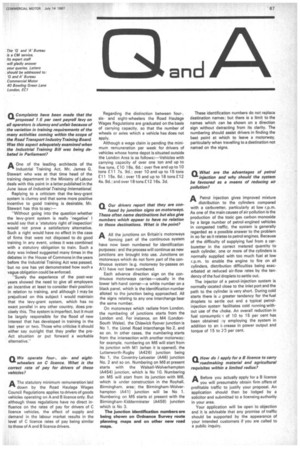Q Complaints have been made that the
Page 69

If you've noticed an error in this article please click here to report it so we can fix it.
proposed 1.6 per cent payroll levy on all operators is clumsy and unfair because of the variation in training requirements of the many activities coming within the scope of the Road Transport industry Training Board. Was this aspect adequately examined when the Industrial Training Bill was being debated in Parliament?
AOne of the leading architects of the
Industrial Training Act, Mr. James G. Stewart who was at that time head of the training department in the Ministry of Labour deals with this point in a letter published in the June issue of industrial Training International.
Replying to a criticism that the levy-grant system is clumsy and that some more positive incentive to good training is desirable, Mr. Stewart has this to say:—
"Without going into the question whether the levy-grant system is really 'negative' I would say that a 'statutory right of inspection' would not prove a satisfactory alternative. Such a right would have no effect in the case of firms that were not disposed to do good training in any event, unless it was combined with a statutory obligation to train. Such a duty was indeed suggested many times in the debates in the House of Commons in the years before the Industrial Training Act was passed, but no one has yet demonstrated how such a vague obligation could be enforced.
"Surely the experience of the post-war years showed the need to give all employers an incentive at least to consider their position in relation to training, and although I may be prejudiced art this subject I would maintain that the levy-grant system, which has no exact parallel in any other country, does precisely this. The system is imperfect, but it must be largely responsible for the flood of new interest that has developed in training in the last year or two. Those who criticise it should either say outright that they prefer the preAct situation or put forward a workable alternative."


























































































































